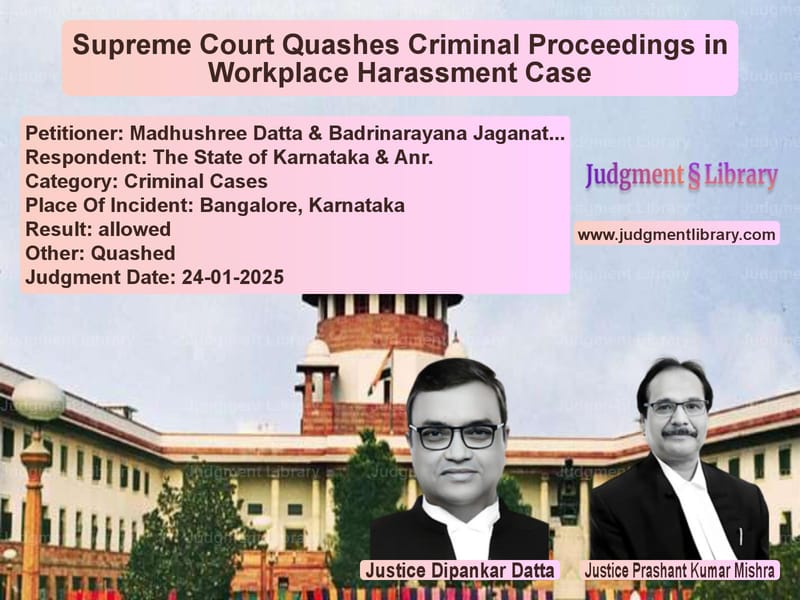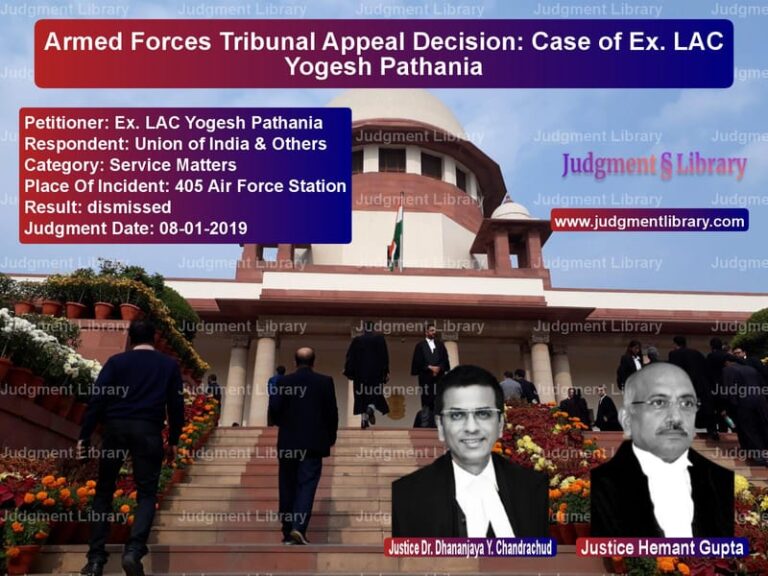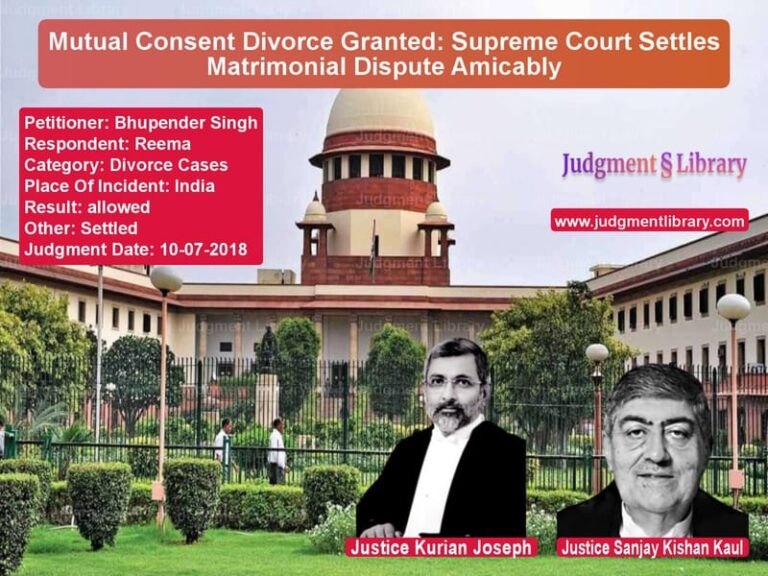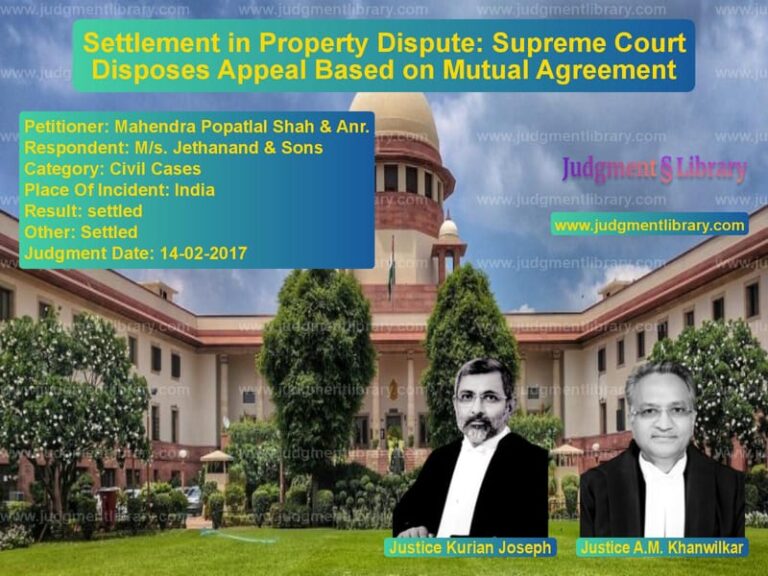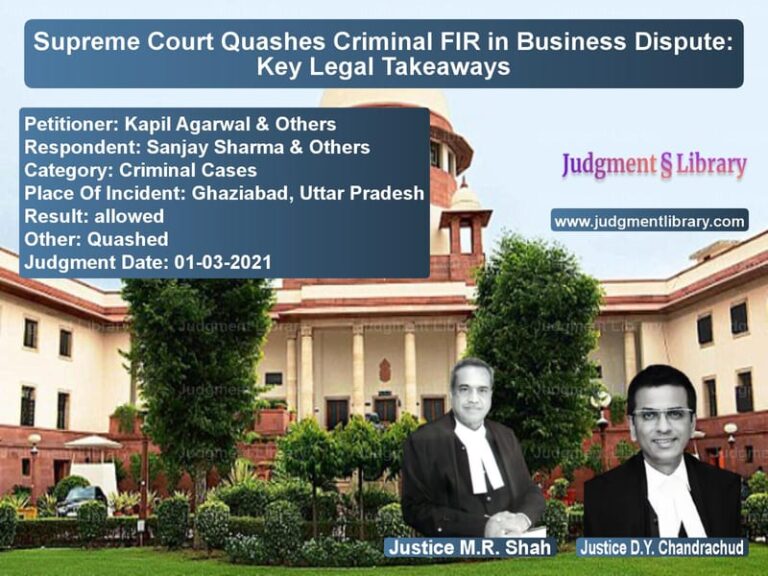Supreme Court Quashes Criminal Proceedings in Workplace Harassment Case
The Supreme Court of India, in Madhushree Datta & Badrinarayana Jaganathan v. The State of Karnataka & Anr., delivered a significant ruling on the misuse of criminal law in workplace disputes. The Court quashed the charges against the appellants, emphasizing that criminal law cannot be used as a tool to settle employment disputes.
Background of the Case
The case arose from a complaint filed by an ex-employee of M/s Juniper Networks India Private Limited alleging workplace harassment, unlawful termination, and criminal intimidation by the company’s HR personnel and management. The appellants, Madhushree Datta (HR Manager) and Badrinarayana Jaganathan (Senior Executive), were accused of coercing the complainant into resigning and engaging in abusive and threatening behavior.
Key Legal Issues
- Whether the allegations in the complaint disclosed a cognizable offense.
- Whether the High Court erred in rejecting the plea for quashing the criminal proceedings.
- Whether the FIR and chargesheet were motivated by an intent to pressurize the company and the accused into a settlement.
Legal Proceedings
Trial Court and High Court Decisions
The complainant initially filed an NCR (Non-Cognizable Report) on October 26, 2013. However, more than two months later, a formal FIR was lodged under Sections 323, 504, 506, 509, and 511 of the Indian Penal Code (IPC). The police filed a chargesheet on April 23, 2014, leading to criminal proceedings against the appellants.
The High Court of Karnataka dismissed the appellants’ petition seeking to quash the proceedings under Section 482 CrPC, holding that the allegations in the complaint made out a prima facie case.
Petitioner’s Arguments Before the Supreme Court
The appellants argued that:
- The FIR and chargesheet failed to disclose any cognizable offense against them.
- The allegations were vague and lacked specific details linking them to criminal acts.
- The complaint was an attempt to misuse criminal law for employment-related grievances.
- The complainant had an alternative remedy in labor law forums but chose to file criminal charges instead.
Senior Counsel for the appellants stated: “The complainant is attempting to convert a workplace dispute into a criminal case to exert pressure on the company and its officials.”
Respondent’s Arguments
The State of Karnataka and the complainant argued that:
- The complainant was subjected to coercion, humiliation, and threats.
- The HR officials confiscated her laptop and personal belongings.
- The complainant was forcefully evicted from the office premises by security personnel.
- The allegations in the FIR were serious and warranted a trial.
The counsel for the complainant contended: “The accused used their positions to intimidate and humiliate the complainant, which constitutes a criminal offense under IPC provisions.”
Supreme Court’s Observations
1. Misuse of Criminal Law in Employment Disputes
The Supreme Court emphasized that employment disputes should be addressed in labor law forums rather than through criminal prosecution.
- “The FIR is an attempt to bring a private employment dispute into the criminal justice system, which is impermissible.”
- “The allegations, even if taken at face value, do not constitute a cognizable offense.”
2. Lack of Evidence for Criminal Intimidation and Assault
The Court noted that the complainant failed to produce medical records or independent witnesses to support allegations of assault or physical harassment.
- “The absence of medical evidence weakens the claim of physical assault.”
- “Mere allegations of being spoken to in a rude manner do not constitute criminal intimidation under Section 506 IPC.”
3. Test for Quashing Criminal Proceedings
The Court reiterated that an FIR can be quashed if the allegations do not constitute an offense on a prima facie reading.
- “Criminal law cannot be set into motion mechanically to settle employment grievances.”
- “The FIR does not meet the threshold required to proceed with a criminal trial.”
Key Precedents Cited
- State of Haryana v. Bhajan Lal: Laid down guidelines for quashing FIRs under Section 482 CrPC.
- Indian Oil Corporation v. NEPC India Ltd.: Held that civil disputes should not be converted into criminal cases.
- Zandu Pharmaceutical v. Mohd. Sharaful Haque: Quashing is justified when prosecution is malicious or an abuse of legal process.
Final Judgment
- The Supreme Court quashed the FIR and criminal proceedings against the appellants.
- The Court held that the allegations were motivated and failed to establish a prima facie criminal offense.
- The appeals were allowed, and the judgment of the High Court was set aside.
Implications of the Judgment
This ruling reinforces key principles in employment law and criminal jurisprudence:
- Criminal law should not be used to settle workplace disputes.
- Allegations of workplace misconduct should be addressed through appropriate labor and civil law mechanisms.
- Courts should quash frivolous FIRs that lack substantive criminal elements.
- Criminal trials should not be used as a pressure tactic in employer-employee disputes.
This landmark judgment safeguards individuals from vexatious criminal prosecution and upholds the integrity of the legal system.
Petitioner Name: Madhushree Datta & Badrinarayana Jaganathan.Respondent Name: The State of Karnataka & Anr..Judgment By: Justice Dipankar Datta, Justice Prashant Kumar Mishra.Place Of Incident: Bangalore, Karnataka.Judgment Date: 24-01-2025.
Don’t miss out on the full details! Download the complete judgment in PDF format below and gain valuable insights instantly!
Download Judgment: madhushree-datta-&-b-vs-the-state-of-karnata-supreme-court-of-india-judgment-dated-24-01-2025.pdf
Directly Download Judgment: Directly download this Judgment
See all petitions in Workplace Harassment
See all petitions in Bail and Anticipatory Bail
See all petitions in Judgment by Dipankar Datta
See all petitions in Judgment by Prashant Kumar Mishra
See all petitions in allowed
See all petitions in Quashed
See all petitions in supreme court of India judgments January 2025
See all petitions in 2025 judgments
See all posts in Criminal Cases Category
See all allowed petitions in Criminal Cases Category
See all Dismissed petitions in Criminal Cases Category
See all partially allowed petitions in Criminal Cases Category

